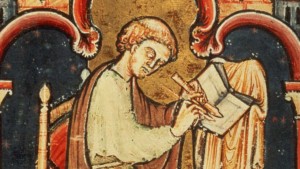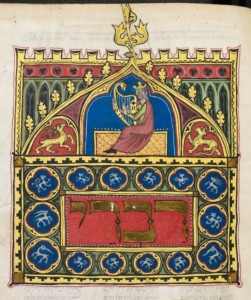Yesterday, I received an email from Jon Elfner, a friend of mine. The email read, in part:
•History is memory. Memory is Identity.•What is the role of music within this context[?]
Jon is an AP American History teacher at a big suburban high school. Part of our early friendship was built on a shared interest in the Civil Rights movement and radical politics of the 1960’s. The music that accompanied these social agitations also formed a strong bond between us.
The email quotation is from an assignment that he gives his students each year in the closing segment of his class. He consulted me a bit on the material a few years ago. Yesterday, he asked me to comment on the assignment as worded. Here are my thoughts.
Monks spend a good portion of each day remembering various moments in salvation history. At the center is the redeeming death of Jesus Christ, a first-century Jewish man who ran afoul of, among others, the Roman prefect Pontius Pilate (whose appearance in the Creed corroborates all that you’re about to read). We also listen to historical texts from the Old and New Testaments, hearing about King David, Cyrus the Great of Persia, Judas Maccabeus and Antiochus Epiphanes, Caesar Augustus, and a host of other characters. In Psalm 78, which we chant every Thursday at about 3:45 a.m. (this takes about ten minutes), we recite almost the entire history of the Jewish people up until the sixth-century B.C. Babylonian Exile.

The Venerable Bede (ca. 673-735), Father of English History
The mysteries associated with the Virgin Mary play a central role in all of this remembering. We meditate on her Visitation to her cousin Elizabeth next week. If we pray the rosary (and many brothers, myself included, do), we remember her life and the life of Christ at other moments throughout the day.
The goal of monastic life is the Kingdom of God, a political reality. What can this mean? The Kingdom is not something like the United States that one can point to on a map and say, “There it is.” Rather the Kingdom is “within you [Luke 17: 21].” It is within us and among us as soon as we are baptized, and the monastic project is, in large part, the work of becoming progressively aware, of having “the power to comprehend with all the saints what is the breadth and length and height and depth, and to know the love of Christ [Ephesians 3: 18-19].” Christ is “drawing all men to himself [cf. John 12: 32],” and “uniting all things [cf. Ephesians].” This uniting of all things includes the redemption of history. All times and seasons belong to Him, as we say at the blessing of the Easter candle.
For this to work, we must tell this history from a particular point of view. This shouldn’t be surprising, as all historical reporting presupposes a point of view. This point of view does not negate others; it offers the correct context for the redemption of other historical narratives not yet fully told. The history and goal of the Civil Rights movement gained coherence from being read into the larger, normative Christian narrative of liberation and reconciliation.
We remember our history not by merely reading about it, but by celebrating it. And celebrating involves music.

King David with his psaltery, composing the Psalms (from a 14th c. manuscript).
Thus the Psalms occupy a central place in monastic identity. The monastic founders insisted on constant meditation on the Psalms, and this almost certainly meant chanting them quietly throughout the day. This musical setting allows the spiritual meaning of these texts to seep into one’s bones, as a nun friend of mine once put it. Tradition relates most of the Psalms to historical moments or personages. They are rarely told in the third person, as history often is. Rather, the Psalms are most typically first-person, and those that aren’t are second-person appeals, using imperatives and hortatives (“Let the sons of Israel say…” “Sing a new song to the Lord…” “Hear this, all you peoples…”). This places us together squarely within the experience of our common history.
The Psalms are poems meant to be sung. Music is an integral part of this formation of identity, stabilizing an integrated emotional and aesthetic response to the history that we celebrate.
Music brought me into the monastery. I read the Bible from an early age, and like many of my contemporaries, I spent my adolescence and early adulthood discrediting what I took to be the Bible’s “message.” Then I would hear music like this (a setting of Psalm 137):
https://www.youtube.com/watch?v=pbHz3-CNh6U
The Babylonian Exile would suddenly speak directly to my experience (my family moved constantly when I was a kid, and I often felt like I was in exile), and my identity as a baptized member of the Body of Christ would become manifest, a felt, intuited reality, by means of an aesthetic proof (more to come on that score in the coming days, I hope). Shared memory became shared identity and shared hope. This came about through the mysterious power of music.